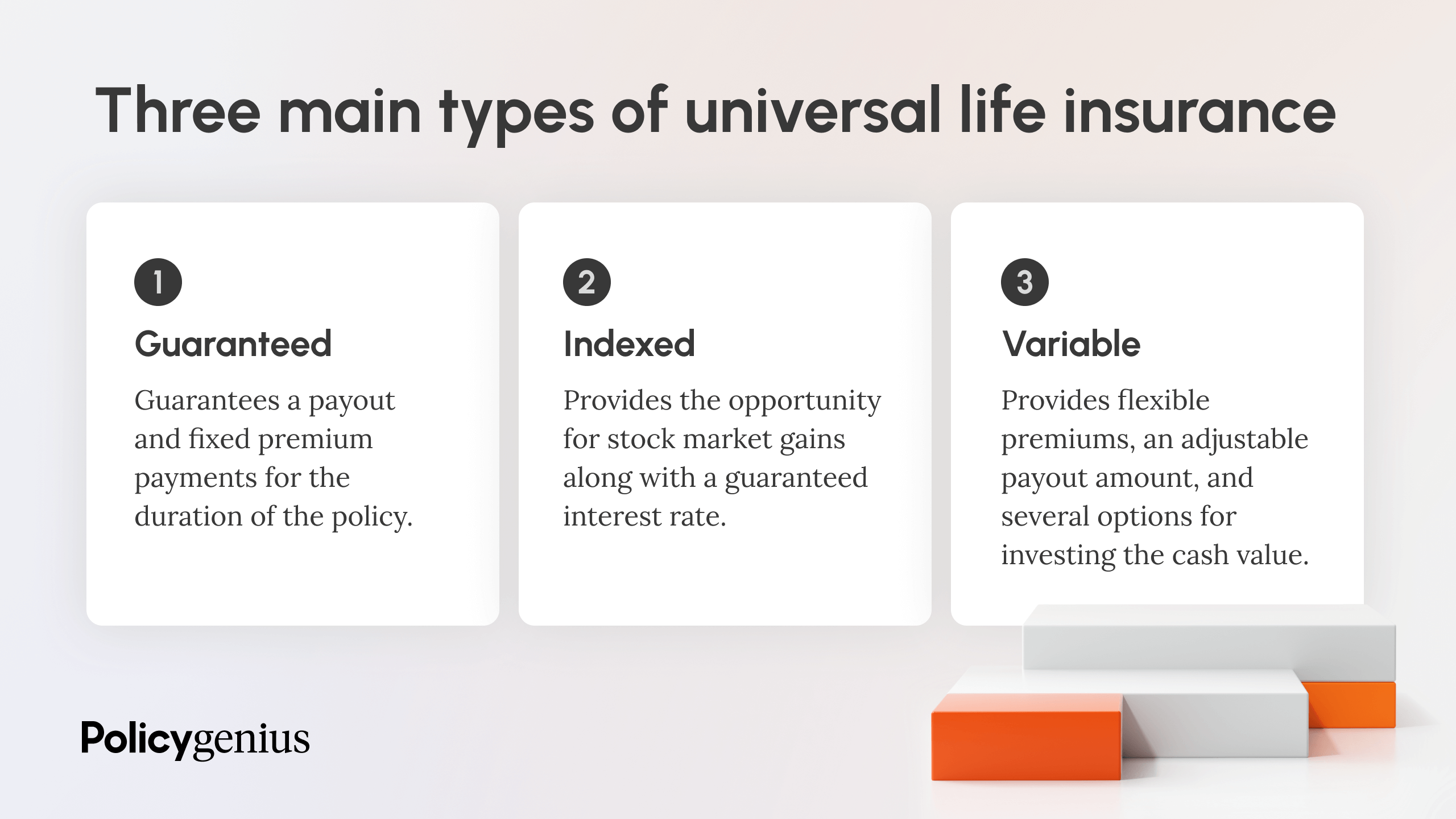All Categories
Featured
Table of Contents
1), frequently in an effort to beat their group standards. This is a straw male disagreement, and one IUL folks love to make. Do they compare the IUL to something like the Lead Total Stock Market Fund Admiral Shares with no tons, an expenditure ratio (EMERGENCY ROOM) of 5 basis factors, a turnover proportion of 4.3%, and an extraordinary tax-efficient record of distributions? No, they contrast it to some dreadful proactively taken care of fund with an 8% tons, a 2% ER, an 80% turnover proportion, and an awful record of temporary funding gain distributions.
Common funds commonly make annual taxed circulations to fund proprietors, even when the value of their fund has decreased in value. Shared funds not just call for income coverage (and the resulting annual taxes) when the common fund is increasing in worth, however can also impose earnings tax obligations in a year when the fund has gone down in worth.
That's not just how common funds function. You can tax-manage the fund, harvesting losses and gains in order to lessen taxable circulations to the financiers, however that isn't somehow mosting likely to alter the reported return of the fund. Just Bernie Madoff kinds can do that. IULs avoid myriad tax catches. The possession of shared funds might require the common fund proprietor to pay estimated taxes.

IULs are easy to place to make sure that, at the owner's fatality, the recipient is not subject to either earnings or inheritance tax. The very same tax decrease techniques do not function virtually also with mutual funds. There are countless, frequently costly, tax obligation traps associated with the moment buying and selling of common fund shares, traps that do not use to indexed life Insurance coverage.
Opportunities aren't really high that you're going to undergo the AMT due to your shared fund circulations if you aren't without them. The rest of this one is half-truths at best. While it is real that there is no earnings tax obligation due to your heirs when they inherit the profits of your IUL policy, it is additionally real that there is no income tax obligation due to your heirs when they inherit a mutual fund in a taxed account from you.
Disadvantage Insurance Life Universal
There are much better means to prevent estate tax obligation issues than purchasing investments with reduced returns. Mutual funds might create income taxation of Social Security advantages.

The development within the IUL is tax-deferred and may be taken as tax cost-free income using lendings. The plan proprietor (vs. the shared fund supervisor) is in control of his or her reportable income, thus allowing them to reduce or also eliminate the tax of their Social Safety benefits. This is terrific.
Here's another marginal issue. It holds true if you purchase a mutual fund for say $10 per share prior to the circulation date, and it distributes a $0.50 circulation, you are then going to owe tax obligations (probably 7-10 cents per share) although that you have not yet had any gains.
But in the long run, it's truly regarding the after-tax return, not just how much you pay in taxes. You are mosting likely to pay even more in tax obligations by utilizing a taxable account than if you acquire life insurance coverage. You're also probably going to have more money after paying those taxes. The record-keeping demands for owning common funds are substantially a lot more complex.
With an IUL, one's records are kept by the insurance provider, duplicates of annual statements are sent by mail to the proprietor, and distributions (if any kind of) are amounted to and reported at year end. This is likewise kind of silly. Certainly you must keep your tax obligation records in case of an audit.
Max Funded Indexed Universal Life Insurance
All you have to do is shove the paper right into your tax obligation folder when it appears in the mail. Barely a reason to buy life insurance policy. It's like this individual has actually never spent in a taxed account or something. Common funds are generally component of a decedent's probated estate.
In addition, they go through the hold-ups and expenses of probate. The profits of the IUL policy, on the various other hand, is always a non-probate distribution that passes outside of probate straight to one's called recipients, and is as a result exempt to one's posthumous creditors, undesirable public disclosure, or comparable delays and costs.
We covered this one under # 7, yet simply to evaluate, if you have a taxed common fund account, you need to put it in a revocable trust (and even simpler, use the Transfer on Fatality designation) in order to stay clear of probate. Medicaid disqualification and lifetime revenue. An IUL can offer their proprietors with a stream of revenue for their whole lifetime, despite how much time they live.

This is advantageous when organizing one's events, and converting assets to revenue before an assisted living facility confinement. Shared funds can not be transformed in a comparable fashion, and are generally thought about countable Medicaid assets. This is an additional foolish one promoting that inadequate people (you recognize, the ones who need Medicaid, a federal government program for the poor, to pay for their assisted living home) need to use IUL rather than common funds.
Indexed Whole Life Insurance
And life insurance policy looks dreadful when contrasted fairly against a pension. Second, people that have money to purchase IUL above and beyond their retired life accounts are going to have to be terrible at taking care of cash in order to ever get Medicaid to spend for their assisted living facility costs.
Chronic and terminal health problem rider. All policies will enable a proprietor's very easy access to cash from their plan, typically waiving any abandonment charges when such people experience a significant disease, need at-home treatment, or become restricted to a retirement home. Mutual funds do not provide a comparable waiver when contingent deferred sales charges still relate to a common fund account whose proprietor requires to offer some shares to fund the expenses of such a stay.
Iul Illustration
You obtain to pay more for that advantage (biker) with an insurance coverage policy. What a fantastic bargain! Indexed universal life insurance supplies fatality benefits to the beneficiaries of the IUL owners, and neither the owner neither the beneficiary can ever shed cash due to a down market. Common funds offer no such assurances or survivor benefit of any kind of kind.
Now, ask yourself, do you in fact need or desire a fatality advantage? I absolutely don't require one after I reach financial freedom. Do I want one? I suppose if it were economical enough. Of course, it isn't economical. Generally, a buyer of life insurance policy spends for truth price of the life insurance benefit, plus the expenses of the policy, plus the profits of the insurance policy company.
Group Universal Life Insurance Cash Value
I'm not completely sure why Mr. Morais threw in the entire "you can't shed money" once again below as it was covered quite well in # 1. He simply intended to repeat the ideal marketing point for these things I intend. Once more, you don't lose nominal dollars, but you can shed real bucks, in addition to face serious chance expense as a result of reduced returns.

An indexed global life insurance policy plan owner might exchange their plan for an entirely different plan without triggering earnings taxes. A mutual fund proprietor can not relocate funds from one shared fund business to one more without marketing his shares at the previous (hence setting off a taxed event), and redeeming brand-new shares at the latter, frequently based on sales charges at both.
While it holds true that you can trade one insurance plan for another, the factor that people do this is that the very first one is such a dreadful plan that also after buying a new one and undergoing the early, adverse return years, you'll still appear ahead. If they were offered the best policy the very first time, they should not have any desire to ever trade it and undergo the early, unfavorable return years once again.
Latest Posts
Best Universal Life
Index Universal Life Vs Roth Ira
Universal Life Insurance Tax Advantages